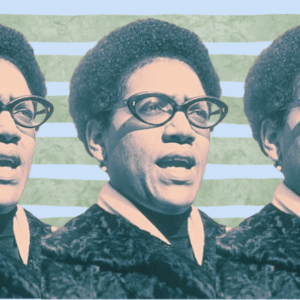Lit Hub Daily: April 20, 2021
THE BEST OF THE LITERARY INTERNET

-
Announcing this year’s O. Henry Prize Winners, featuring Jamel Brinkley, Tiphanie Yanique, Sally Rooney, and more. | Lit Hub
Article continues after advertisement -
“It is not enough to eat food: I need to wallow in the whole process.” Nigella Lawson on the sublime act of eating. | Lit Hub Food
-
It’s Tuesday, so excuse us while we start reading these new books. | The Hub
-
“Though many of the games’ most iconic elements are military in nature, their most important recurring theme is that of home.” J. Robert Lennon recounts spending his pandemic year inside a video game. | Lit Hub
-
Mixed metaphors and disorder aside, Drew Johnson recommends treating yourself to a Hot Balzac Summer. | Lit Hub Criticism
Article continues after advertisement -
“It’s hard for people who have never experienced it to truly grasp what it means to lack proper documents.” Charles Simic and Romeo Alaeff on living in exile. | Lit Hub Photography
-
Check out this exhibit from a 1964 collaboration between Frank O’Hara and Italian painter Mario Schifano. | Lit Hub Art
-
Sometimes it’s better to write facing a wall: Isabel Wohl considers the possibilities and constraints of place in fiction. | Lit Hub Craft
-
Audrey Clare Farley on the secret history of forced sterilizations in early 20th-century California. | CrimeReads
-
“Here is the master technician once more at the top of his form.” A 1952 review of Ernest Hemingway’s The Old Man and the Sea. | Book Marks
Article continues after advertisement -
What forces go into determining the length of a novel? (Sadly, it’s not just the will of The Muse.) | Countercraft
-
“Wright’s story would have been just as relevant if it had been released ten years ago or 30, 50, or 80—when he composed it.” On Richard Wright’s The Man Who Lived Underground. | The New Republic
-
Judy Blume’s books defined an era, but how do they read today? | The Washington Post
- Vartan Gregorian, savior of the New York Public Library, has died at 87. | The New York Times
-
“Black and brown people are told in endless ways by fraternal orders of police and their powerful enablers: Comply and survive.” Ibram X. Kendi on police brutality and the false promise of compliance. | The Atlantic
-
Nadya Agrawal discusses the legacy of Bend It Like Beckham and the scarcity of representation. | Catapult
Article continues after advertisement -
Annie Howard on the ways that queer archives “speak to present-day queer concerns” and preserve groundbreaking activists’ work. | Lapham’s Quarterly
-
Michael Seidlinger breaks down how “bookishness” in digital culture affects the publishing industry. | Publishers Weekly
Also on Lit Hub: Alia Volz on growing up in a cannabis bakery • How a queer couple masterminded a Nazi resistance campaign • Read from Mira Sethi’s new collection, Are You Enjoying?



















